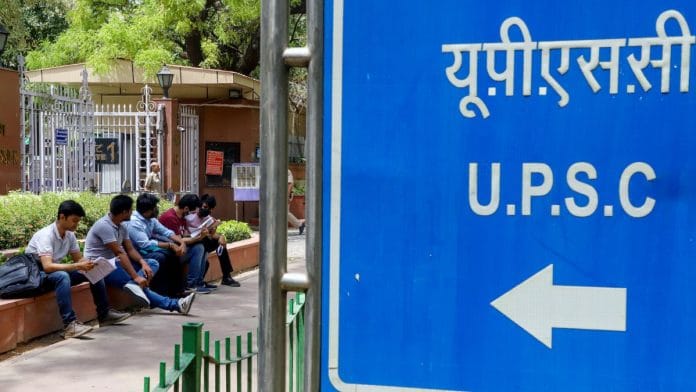Since the death of three UPSC aspirants in the basement of coaching institute Rau’s IAS Study Circle in Delhi’s Old Rajinder Nagar, news organisations have been talking about the challenging conditions and struggles these students face during preparation. Seeing such hardships makes one ask what is so special about UPSC that students are willing to go through intense struggles, despite knowing that the success rate of the exam is less than 0.01 per cent. Is it desperation or pure, unreasonable craze?
For many, cracking the civil services exam is a way to change fate, break the cycle of poverty and generational struggles, and earn prestige. The mindset behind it is that it’s a choice between being a victim/survivor of the system and becoming a master of it by securing a position of power. I am sure that many in the Indian middle class have heard that no one would dare to mistreat or be unfair to a family that has an IAS officer—a testament to the influence that comes with the position. It’s the desire to gain the power to utilise the same system for one’s privilege.
The desire to gain bureaucratic power has been always there among Indian Muslims as well. However, since the majority of Indian Muslims are Pasmanda, who historically lacked access to basic education, the dream of participating in the system as IAS/IPS officers is a far-fetched idea for many. While some reports say that the number of Muslim aspirants cracking UPSC exams is increasing, the reality is that members of the community remain grossly underrepresented, falling short of their population ratio.
However, something appears to be shifting within the community now — there is growing awareness and an increasing allocation of resources dedicated to competing in such exams, sponsored by originations aiming to uplift disadvantaged communities.
Also Read: 51 Muslims have cleared UPSC exams. It challenges the narrative of discrimination
A complex phenomenon
An interesting dichotomy exists within the community — that being a Muslim is a disadvantage in the selection process for civil services and ending discrimination is possible only by being part of the system. The idea that discrimination arises due to one’s identity comes from the reality of tribalism and the persistence of victimhood sentiments, which are often fuelled by shows like Sudarshan TV’s UPSC Jihad. At the same time, the aspiration to break this cycle is inspired by the example set by Mayawati’s government. I remember many educated Muslims used to discuss how Mayawati ensured Dalit representation to guarantee justice and law enforcement. Laws and welfare schemes for Dalits had been lying useless until then. Her slogan, “Nahin chahiye CM-PM, hamein chahiye SP-DM” speaks volumes about how ensuring Dalit representation in state administration brings much-needed change on the ground. A similar sentiment can be found among well-educated Muslims as well.
The desperation to crack the UPSC exam highlights the wish for protection, privilege, and desire to secure a share of power within the system. It is a sign that Muslim UPSC aspirants have faith in the system and are just like other Indians with the same aspirations. Victimtimhood sentiments, though, add to the desperation. Such aspirations transcend personal dreams and enter a collective realm. This can be observed among Jains, Baniyas, and Dalits as well.
The increasing participation of Indian Muslims in UPSC is a complex phenomenon. On one hand, it’s encouraging to see that Muslims have faith in national institutions and are moving beyond a victimhood narrative. On the other hand, it reflects a realisation that we don’t function solely on an individual level, and there is a belief that sharing power is the only way to safeguard oneself, whether personally or as a community. This points to a deeper issue within our system—one that requires an overhaul. We shouldn’t feel the need to go to such lengths to ensure fairness and justice; these pursuits should be driven by better reasons, not by fear of exclusion, marginalisation or greed for privileges.
Amana Begam Ansari is a columnist and TV news panelist. She runs a weekly YouTube show called ‘India This Week by Amana and Khalid’. She tweets @Amana_Ansari. Views are personal.
(Edited by Humra Laeeq)






